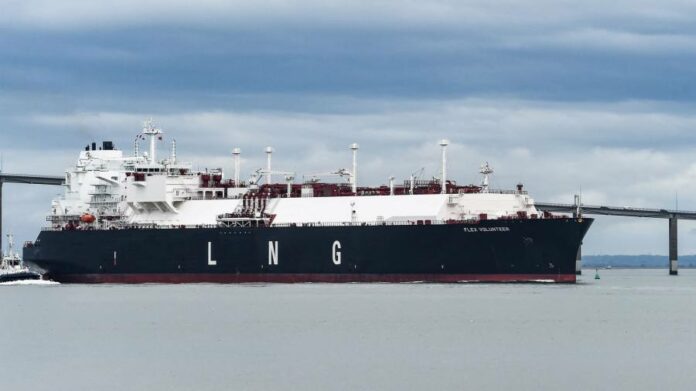The regulator charged with building a planned new EU benchmark for imported gas has admitted the ambitious project will be difficult to put into practice.
Acer, the EU’s energy regulator, has joined traders and analysts casting doubt on a plan from Brussels for a new regional standard that would more accurately track the price of liquefied natural gas being shipped into the bloc.
The European Commission wants to create an alternative to the benchmark formed by the Netherlands-based Title Transfer Facility and run by the US’s Intercontinental Exchange. Trades on this virtual hub for European gas buyers form the basis of the region’s reference benchmark, which has been volatile this year.
Dwindling Russian supplies have stoked inflation and threatened to tip the eurozone economy into recession. The war in Ukraine and record temperatures in Europe over the summer pushed TTF prices to €349 per megawatt hour in late August, although prices have tumbled to around €100 MWh in recent days.
But the commission says TTF does not truly reflect supply and demand in international gas markets. In proposals published last month, it suggested a “more representative” alternative that incorporated the extra LNG being shipped into the bloc to help replace the 155bn cubic metres it previously received through pipes from Russia.
Unlike TTF, which is based entirely on real transactions, its price would be assessed by an administrator. “The new benchmark will provide for stable and predictable pricing for LNG,” the commission said last week. It would work “by collecting real-time information on all daily LNG transactions”.
But Acer, which has been tasked with creating the new benchmark, admits it is difficult because many LNG deals are bespoke and negotiated privately. That means data from LNG contracts are harder to monitor and quantify than spot market prices for piped gas, according to the regulator.
“We are analysing all sorts of possibilities to come up with methodologies,” said Iztok Zlatar, head of Acer’s market data analytics. He added that the creation of the new benchmark was beyond the scope of Acer’s normal remit and was “a demanding task operationally”.
“It is quite a big task [and] so far we weren’t granted any additional resources for this activity. It is quite an undertaking,” he added.
He also said that Acer “cannot tell” if the new benchmark would be accepted by the market. “It depends on the LNG market as it develops in Europe.”
Traders and analysts say TTF reflects the reality of buying and selling gas on the open market.
“The physical LNG market is extremely illiquid; you’re lucky if there are a handful of trades in a week,” said Neil Fleming, who leads global pricing and analysis at data company Argus.
“By contrast, there are thousands of trades a day in TTF. There’s nothing structural that suggests a new LNG benchmark is cheaper or better to price gas,” he added.
Even then, industry benchmarks and the futures contracts that are pegged to them usually take years to attract the depth and reliability that makes them indispensable to the market.
Acer can start collecting data only once the proposal has approval from the EU’s 27 member states, which will not happen until November 24. Despite this, preparatory work has already begun, given the tight deadline set by the commission to have a new benchmark in place by March 31.
However, the energy industry is worried that a new pricing measure would split already fragile liquidity and do little to tackle the fundamental issues of tight supply and rising demand that have forced prices to record highs.
The price of TTF and spot LNG have diverged this year as the capacity to hold and process the cooled liquid fluctuates.
“In such a thinly traded market, you don’t want to be dividing liquidity even more by creating a new benchmark,” said James Waddell, head of European gas and global LNG at Energy Aspects. “It’s really unclear what purpose that would serve.”
Adding to the complexity, there is no single LNG price. ICE said last week it would launch two new LNG contracts to help users hedge the difference in prices in north-west and south-west Europe. The two regions have different infrastructure to handle LNG, and the north was priced $1.73 higher, at $18.562 per million British thermal units, on Thursday.
“Stating that there would be development of a complementary LNG benchmark is laudable but whether it is actually a solution remains to be seen,” said Ben Wetherall, energy market development director at research company ICIS.






